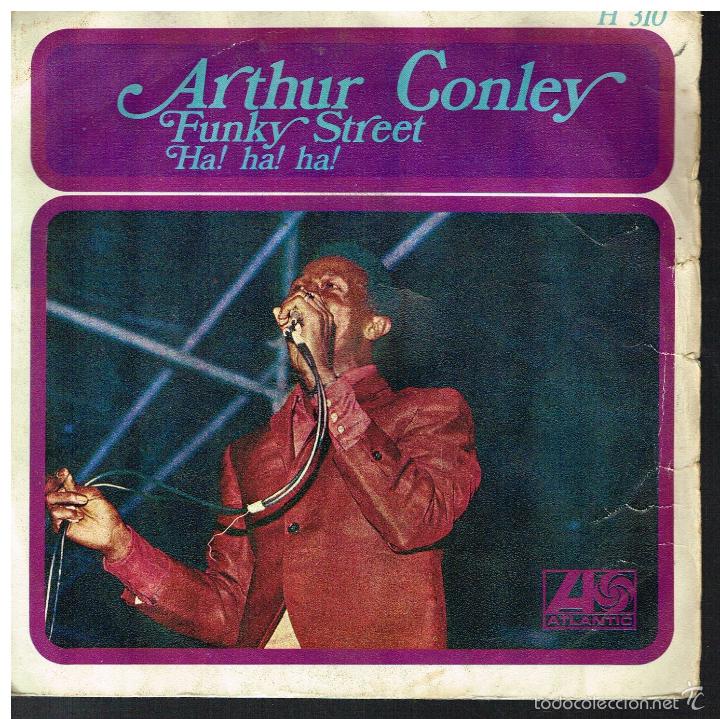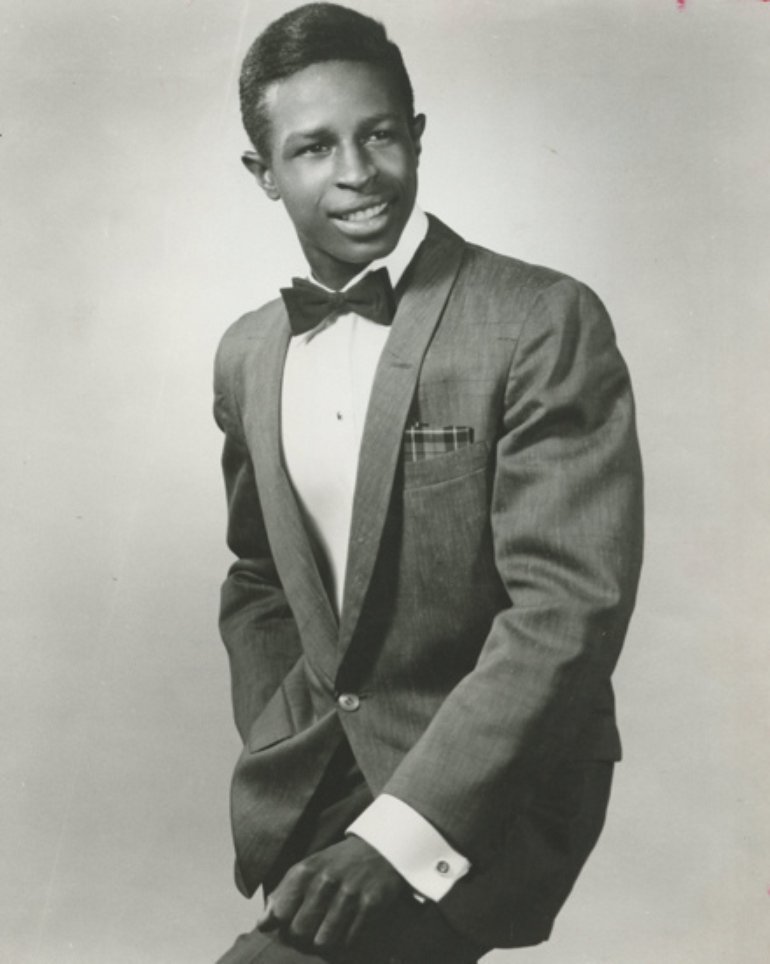ARTHUR CONLEY
Otro single rayado que forma parte de la modesta colección de quien os habla .
Arthur Lee Conley (January 4, 1946 – November 17, 2003) was a U.S. soul singer, best known for the 1967 hit "Sweet Soul Music".
Conley was born in McIntosh County, Georgia, U.S., and grew up in Atlanta. He first recorded in 1959 as the lead singer of Arthur & the Corvets. With this group, he released three singles in 1963 and 1964—"Poor Girl", "I Believe", and "Flossie Mae"—on the Atlanta-based record label, NRC Records.
Biography and career
In 1964, he moved to a new label (Baltimore's Ru-Jac Records) and released "I'm a Lonely Stranger". When Otis Redding heard this, he asked Conley to record a new version, which was released on Redding's own fledgling label Jotis Records, as only its second release. Conley met Redding in 1967. Together they rewrote the Sam Cooke song "Yeah Man" into "Sweet Soul Music", which, at Redding's insistence, was released on the Atco-distributed label Fame Records, and was recorded at FAME studios in Muscle Shoals, Alabama. It proved to be a massive hit, going to the number two position on the U.S. charts and the Top Ten across much of Europe. "Sweet Soul Music" sold over one million copies, and was awarded a gold disc.[
After several years of hit singles in the early 1970s, he relocated to England in 1975, and spent several years in Belgium, settling in Amsterdam (Netherlands) in spring 1977. At the beginning of 1980 he had some major performances as Lee Roberts and the Sweaters in the Ganzenhoef, Paradiso, De Melkweg and the Concertgebouw, and was highly successful. At the end of 1980 he moved to the Dutch town of Ruurlo legally changing his name to Lee Roberts—his middle name and his mother's maiden name. He promoted new music via his Art-Con Productions company. Amongst the bands he promoted was the heavy metal band Shockwave from The Hague. A live performance on January 8, 1980, featuring Lee Roberts & the Sweaters, was released as an album entitled Soulin in 1988.
Personal life
Conley was gay, and several music writers have said that his homosexuality was a bar to greater success in the United States and one of the reasons behind his move to Europe and his eventual name change. In 2014, rock historian Ed Ward wrote, "[Conley] headed to Amsterdam and changed his name to Lee Roberts. Nobody knew 'Lee Roberts,' and at last Conley was able to live in peace with a secret he had hidden—or thought he had—for entire career: he was gay. But nobody in Holland cared."
19 NOV 2003
Arthur Conley, cantante de soul de 57 años, falleció victima del cáncer el pasado lunes en Ruurlo, localidad holandesa que fue su base de operaciones desde los ochenta. Conley, apadrinado por el gran Otis Redding, logró éxitos internacionales con canciones tan exuberantes como Sweet soul music y Funky street.
Arthur Lee Conley había nacido el 4 de enero de 1946 en McIntosh, estado de Georgia, y creció en Atlanta. Grabó desde finales de los cincuenta con grupos locales como Arthur and the Corvets y The Evening Smiles. Se trasladó a Baltimore, donde registró una canción, I'm a lonely stranger, que llamó la atención de Otis Redding en 1965. Otis le recomendó pero solo se encontraría con Conley dos años después.
Para entonces, Redding ya pensaba en extender sus alas y se convirtió en protector de Conley, buscándole un contrato con el ilustre sello neoyorquino Atlantic,y también le llevó de gira como parte del espectáculo de la compañía sureña Stax. Otis produjo Sweet soul music, feliz adaptación de Yeah, man, el tema de Sam Cooke con una letra que celebraba a algunos héroes del soul. Asimismo, Otis estuvo detrás de su versión de Shake, rattle and roll, que igualmente entró en las listas en 1967.
La muerte de Otis Redding dejó a Conley en una posición incómoda, aunque intentó reclamar el puesto de heredero musical del difunto. Atlantic le potenció integrándole en The Soul Clan, fugaz supergrupo -los otros miembros eran Solomon Burke, Ven E. King, Joe Tex y Don Covay- que triunfó con Soul meeting (1968). Otros impactos de Conley fueron el gran Funky street (1968), People sure act funny (1968), Aunt Dora'a love soul shake (1968), Ob-la-di, ob-la-da (1969) y God bless (1970), todos en Atlantic. El hecho de que le convencieran para hacer Ob-la-di, ob-la-da, una de las piezas más livianas de los Beatles, evidenciaba su carencia de dirección: a Otis Redding también le presionaron para que cantara otro éxit-del-momento, Winchester cathedral, pero se negó.
Ya en el sello Capricorn, los éxitos no se repitieron. Conley había trabajado con fortuna por Europa -a su paso por España, dejó constancia de su simpatía- y se trasladó allí, viviendo en el Reino Unido y Bélgica antes de afincarse en Holanda. Por razones personales, cambió su nombre legalmente a Lee Roberts (el apellido era el de su madre). Como Lee Roberts & the Sweaters, lanzó en 1986 Soulin', un LP grabado en directo en Amsterdam.
Desde Ruurlo, dirigió varios sellos independientes, una editora musical y una pequeña emisora de radio. A diferencia de otros compañeros de generación, no se benefició de la revalorización del soul en los ochenta y noventa. Sin embargo, sus canciones siguieron corriendo en otras voces. Sweet soul music, glorioso paradigma del soul más bailable, formó incluso parte del repertorio de Bruce Springsteen y Tom Jones.-




Comments